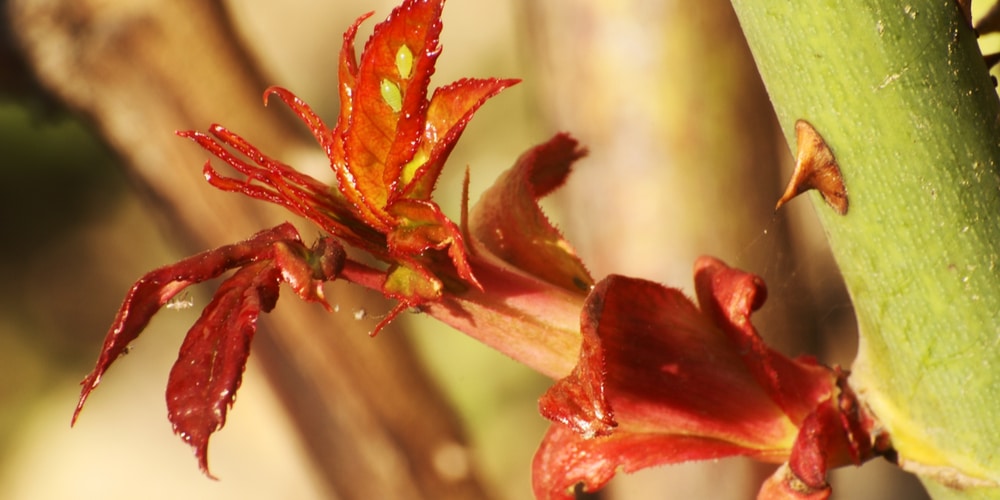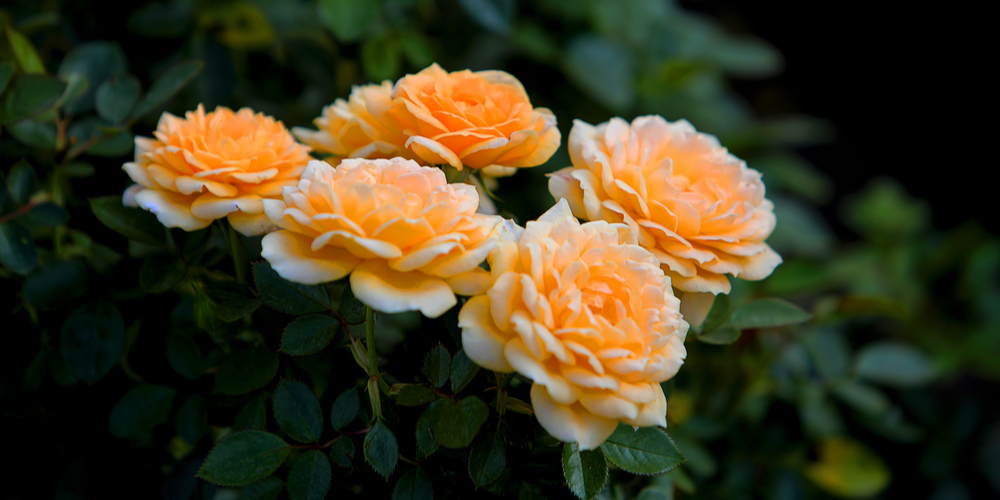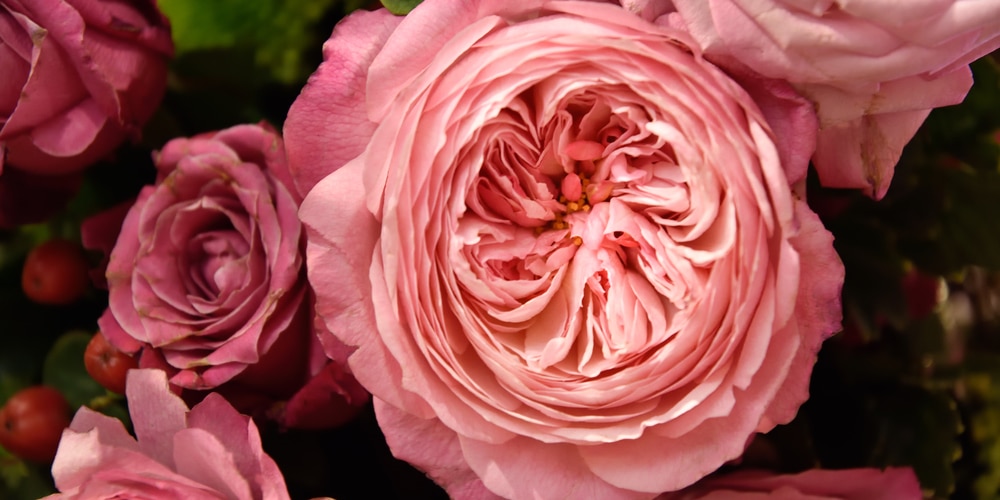When most people think of rose bushes, they imagine the perfect foliage: a lush green carpet with delicate pink or red blooms perched atop. Surrounding this image is usually a white picket fence or perhaps a trellis laden with ivy.
With proper care, this picture can become a reality in any garden.What many people don’t realize is that rose bushes are not without their problems. Aside from the typical pests and diseases, rose bushes are also susceptible to rose suckers.
What are they, and what damage can these do to your beloved plant?
What if your rose bush looked more like an unruly mass of green shoots sprouting from the base of the plant, with few blooms in sight? If your roses look more like the latter, you likely have suckers growing.
What are Rose Suckers?
Rose suckers are fast-growing shoots that sprout from the base of the plant, near where the roots meet the stem. From afar, they may look like miniature rose bushes, but upon closer inspection, you’ll notice that they lack the typical features of a rose bush. They are typically thinner and more spindly than the main stems of the bush, and they rarely produce flowers.
You’ll see them shooting from the soil or from below the graft union (the point where the rose bush was grafted onto its rootstock). In some cases, you may even see them growing from the main stems of the bush.
These suckers result from poorly grafted rose bushes or rose bushes that have been grafted onto the wrong rootstock. When this happens, the rootstock (typically a hardier plant) takes over and produces its own shoots and leaves. These new growths are then referred to as “suckers”.
The Damage Rose Suckers Can Do To Your Rose Bush
While rose suckers may not look like much, they can actually do a lot of damage to your plant. Here’s what rose suckers can do to your bush:
They Compete for Water and Nutrients
The main problem with rose suckers is that they steal valuable resources from the rest of the plant, including water and nutrients. When your plant doesn’t receive sufficient water and nutrients, it tends to become stunted and eventually weak.
If left unchecked, this can cause the death of your plant.
They Weaken the Plant
Aside from stealing nutrients, rose suckers also compete for the plant’s energy. The plant then has to work harder to produce food for itself and the rose suckers, which weakens the plant as a whole.
This can make your plant more susceptible to diseases and pests and can ultimately lead to its death.
Rose Suckers are Unsightly
Is this a big deal? Some might say no, but if you take pride in the appearance of your garden, then rose suckers can definitely be a problem. They can make your plant look unruly and overgrown and can spoil the symmetry of your garden.
There are three types of rose suckers, and each one can cause different problems for your plant:
1) Off-Root Suckers
These are the most common, and as the name suggests, they grow from the roots of your plant.
2) Below-Ground Suckers
These grow from the budding union, but they’re located deeper, so you have to move the soil to be able to see them.
3) Above-Ground Suckers
These rose suckers grow from the main stems of your plant and are typically the result of poor pruning.
How to Get Rid of Rose Suckers
Leaving rose suckers on your plants is never an option. Aside from making your plant look rowdy and unruly, these could eventually lead to your rose bush’s death. So, how do you get rid of rose suckers?
Getting rid of it with a knife or pruning shears won’t do the trick. In fact, this will only make the problem worse.
Here’s a step-by-step guide on how you can get rid of rose suckers:
1) Wait until the plant is dormant. This is typically in late winter or early spring.
2) Moisten the soil around the base of your plant. Wet soil is easier to work with and will minimize the risk of damaging the roots. This makes it easier to identify and figure out where the suckers are coming from.
3) Identify the rose suckers. This is usually easy to do, as they’re thinner and spindlier than the main stems of the plant. Figure out where the suckers are coming from, as this will determine how you remove them.
4) Upon identifying the rose suckers, simply twist off the stem and carefully pull it out of the ground. If the sucker is coming from the roots, you may need to dig around a bit to be able to remove it altogether.
5) Use a tree wound sealer on the area where the sucker was removed. This will help prevent diseases and pests from entering the plant and will also help the plant heal faster.
Now that you know how to get rid of rose suckers, it’s time to learn how to prevent them from coming back.
How to Prevent Rose Suckers From Growing Back
Getting rid of rose suckers is only half the battle. The other half is preventing them from growing back, and this can be done in a few simple ways:
Prune Properly
One of the main reasons why rose suckers grow in the first place is because of poor pruning. When you prune your plant improperly, it encourages new growth, leading to the formation of rose suckers.
Protect Your Rose Bush from Frost Damage
Other than improper pruning techniques, frost damage is also a major contributor to rose sucker growth. When the temperature dips below freezing, the plant may suffer from frost damage. This damage typically happens to the buds and can cause them to form rose suckers.
Water Your Plant Regularly
A well-watered plant is a healthy plant, and a healthy plant is less likely to form rose suckers. Watering your plant regularly will also help it recover faster if it does suffer from frost damage.
Fertilize Your Plant
Fertilizing your plant will help it grow strong and healthy, which in turn, will make it less susceptible to rose suckers.
Final Thoughts
Suckers may seem tiny, but their presence can definitely have a big impact on your plant. If you don’t do something about it immediately, it could eventually kill your rose bush.
So, the next time you see a rose sucker on your plant, don’t hesitate to take immediate action. And, if you want to prevent them from coming back, be sure to follow the tips we listed above. Do all of these, and you’ll have a healthy and beautiful rose bush in no time!
Related Articles: Will Frost Hurt Rose Bushes?



